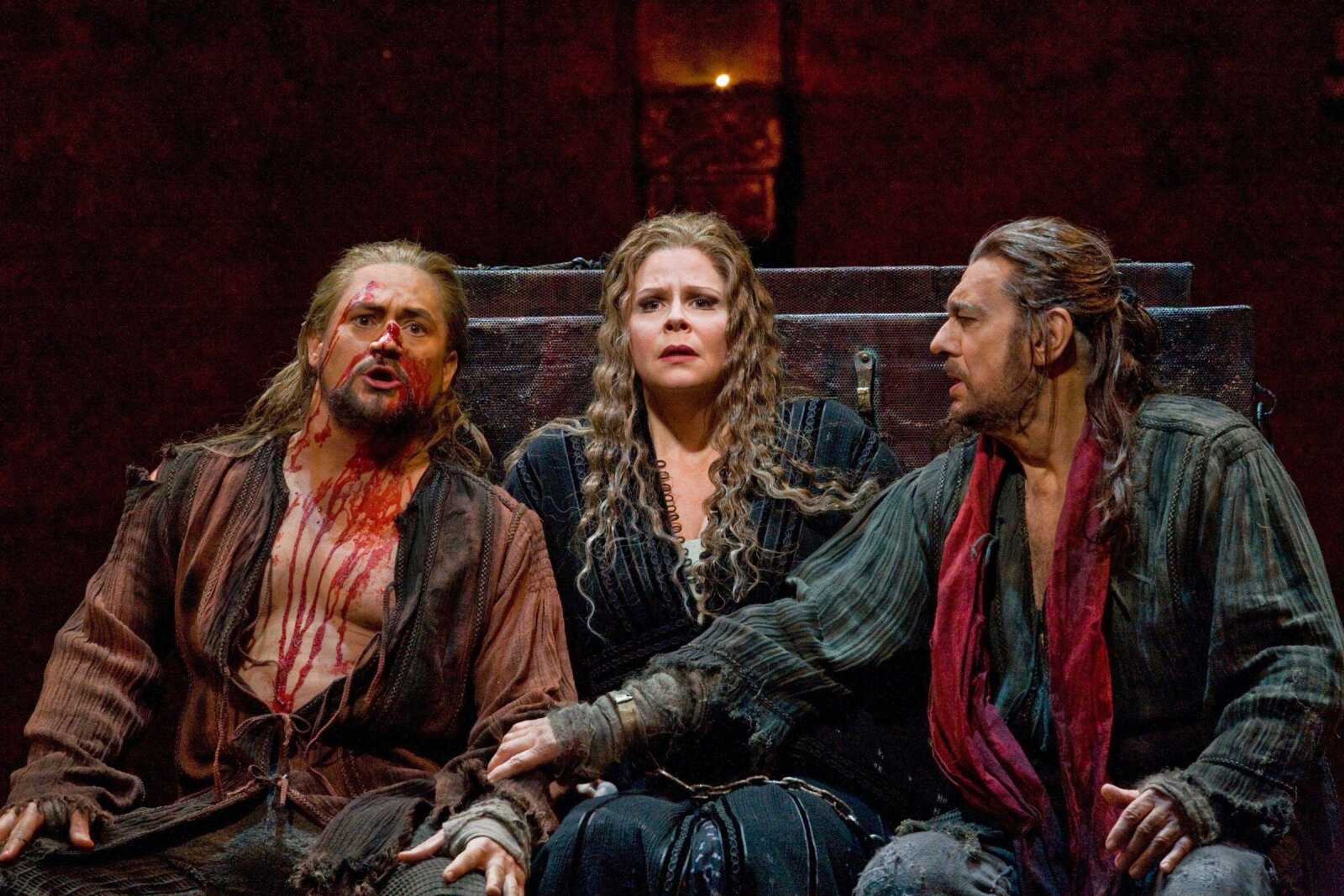Opera Bites: Gluck's opera brings Greek tragedy to stage
On Saturday, the live high-definition broadcast from the Metropolitan Opera will be Christoph Gluck's "Iphigenie en Tauride." The performance begins at noon at the AMC Town Plaza 5 in Cape Girardeau. This opera is one of Gluck's last works. The opera is based on a story from Greek mythology. When the Greeks were preparing to sail to Troy and recapture Helen, their ships were becalmed. In order to stir up the wind, Agamemnon sacrificed his daughter, Iphigenie, to the goddess Diana...
On Saturday, the live high-definition broadcast from the Metropolitan Opera will be Christoph Gluck's "Iphigenie en Tauride." The performance begins at noon at the AMC Town Plaza 5 in Cape Girardeau.
This opera is one of Gluck's last works.
The opera is based on a story from Greek mythology. When the Greeks were preparing to sail to Troy and recapture Helen, their ships were becalmed. In order to stir up the wind, Agamemnon sacrificed his daughter, Iphigenie, to the goddess Diana.
However, the girl was not really killed but was spirited away to Tauris, where she became the high priestess of Diana.
Fifteen years have passed, and Iphigenie is before the temple of Diana as Act 1 begins. She asks the gods to stop the storm that is raging. She does not know that her father is dead -- murdered by her mother -- and that her brother killed their mother. The king of Tauris, Thoas, arrives; he is in fear for his life. He orders Iphigenie to kill the first stranger who appears. Soldiers enter with two Greek men they have captured.
In Act II it is revealed that the men are Orestes, Iphigenie's brother though she does not recognize him, and his friend Pylade. They are separated and Orestes falls asleep, tormented by dreams of killing his mother. When he wakes up he sees Iphigenie, who asks about her homeland and family. Orestes tells her about the deaths of her parents, adding that her brother committed suicide. She orders him to the temple to be sacrificed.
Act III begins with Iphigenie resolving to save one of the captives. She wants to send him to Mycenae with a letter. Pylade is willing to die for his friend, but Orestes will not allow this. Iphigenie gives Pylade the letter and helps him escape.
In the final act, Iphigenie is pleading with Diana to spare the remaining captive. Orestes tells her to do her duty, and when he mentions his sister, the two recognize each other. Thoas bursts in and orders the sacrifice of Orestes. Pylade returns with Greek soldiers and the king is killed. Diana appears and sets everyone free. Iphigenie and Orestes return home to Mycenae.
Tenor Placido Domingo sings the role of Orestes, and mezzo-soprano Susan Graham will be Iphigenie.
One commentator had this to say about the opera: "Beneath its apparently austere music smolders a vital fire, and out of this fusion of words and notes is born the most gripping, the most noble poetry."
Barbara Herbert is an opera lover and host of KRCU's "Sunday Night at the Opera."
Connect with the Southeast Missourian Newsroom:
For corrections to this story or other insights for the editor, click here. To submit a letter to the editor, click here. To learn about the Southeast Missourian’s AI Policy, click here.










